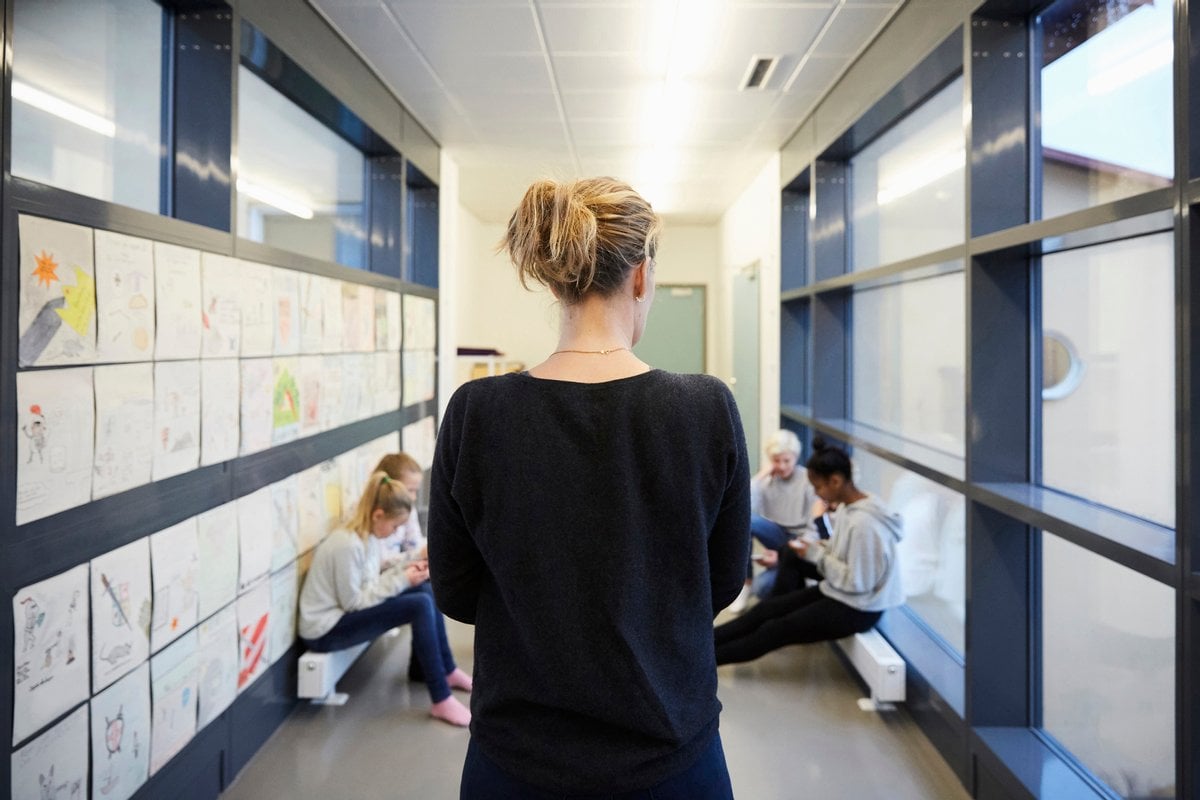
How can I be a teacher in a government school and not constantly think about social justice?
Kids are not showing up for the same race and my students in western NSW are leagues behind their peers at inner Sydney private schools (where I went to school) by the time they reach Year 7.
I am frustrated that, as a teacher at a public high school in New South Wales, and a government employee, I can’t publicly speak out or be critical of the system that I see, or the government of the day, to highlight the issues facing rural schools such as mine. But my students and my and community deserve their privacy too. So, I am writing this anonymously.
Watch: A thank you to teachers, everywhere. Post continues below.
Teachers are burning out and leaving in droves.
I’m only in my third year of teaching, but if I burn out it will be because of the cycle I watch repeat itself daily.
My students’ parents often are following the path laid down for them from childhood. Without immense grit, some luck, and real intervention and who knows what else, some of my students seem destined to follow their parents - violence, drug use, gaol time, instability, and a never-ending poverty cycle.
For me, and most teachers I know, Tuesday’s strike is not really about a 7 per cent pay rise. What we need most - what our students need most - is more time. Time for the incidental conversations with a student staring at the ground, time to check in about an off comment made in class, and of course, time to plan lessons, mark student work, contact parents, and do admin jobs.

Top Comments